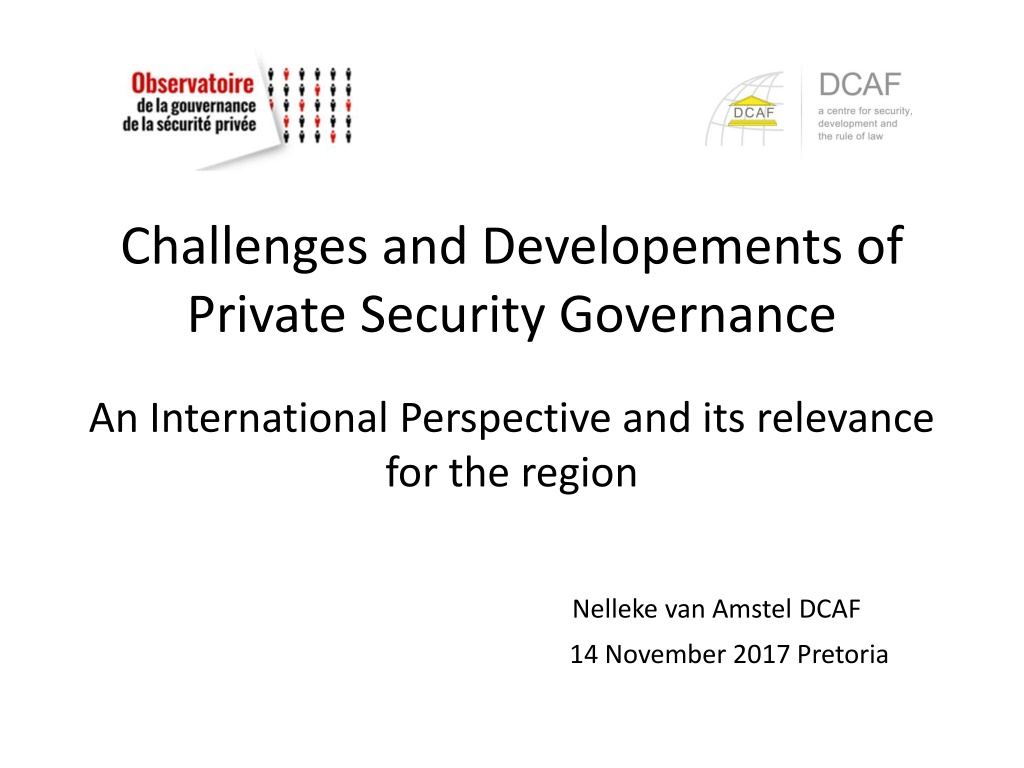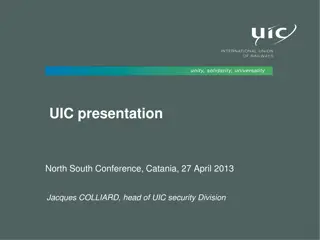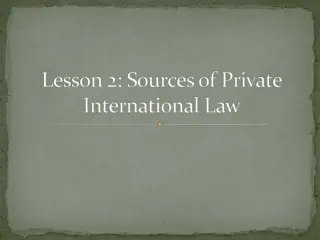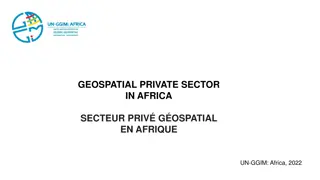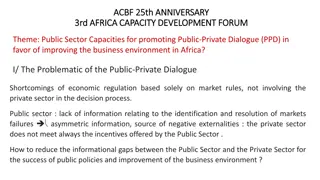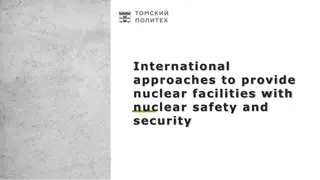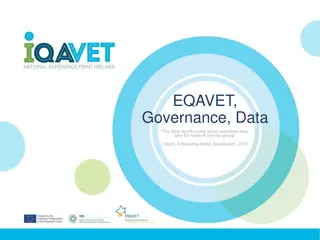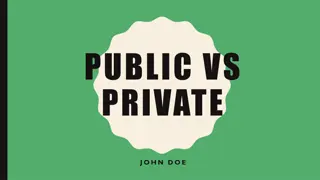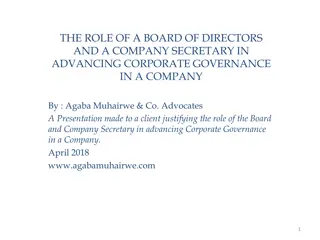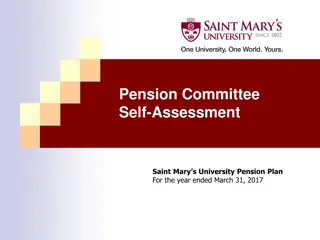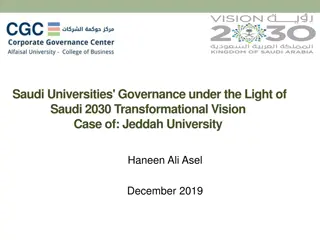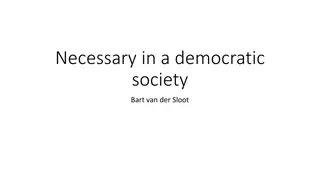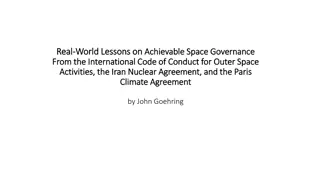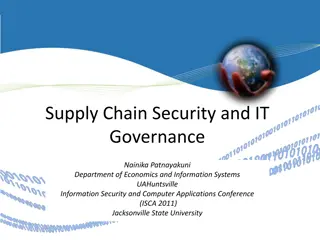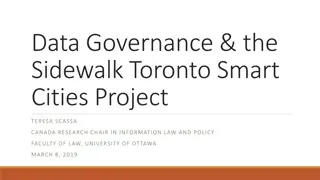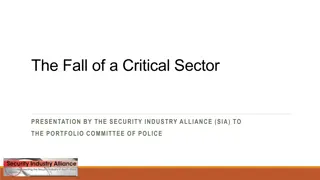Challenges and Developments of Private Security Governance: An International Perspective
Global challenges faced by the private security industry include lack of information, oversight, accountability, close relations with public institutions, and procurement issues. Initiatives like the Montreux Document and International Code of Conduct aim to regulate the industry and promote human rights. Regional developments focus on African Union involvement and the role of Civil Society Organizations in shaping these initiatives.
Download Presentation

Please find below an Image/Link to download the presentation.
The content on the website is provided AS IS for your information and personal use only. It may not be sold, licensed, or shared on other websites without obtaining consent from the author. Download presentation by click this link. If you encounter any issues during the download, it is possible that the publisher has removed the file from their server.
E N D
Presentation Transcript
Challenges and Developements of Private Security Governance An International Perspective and its relevance for the region Nelleke van Amstel DCAF 14 November 2017 Pretoria
Content: Global challenges of the PSC industry International initiatives Montreux Document ICoC and ICoCA Related developments (VP, UNGP, UNWG) Regional developments National relevance of international developments? Role of CSOs in these initiatives?
Global challenges of the PSC industry Local contexts are specific, but a global trend Recurring challenges: 1) Lack of information 2) Lack of effective oversight and accountability 3) Close relations with public institutions 4) Public Procurement 5) Recurring thematics
International Initiatives (1) Montreux Document: Regulates States relations with PMSCs Restates existing international law, Good practices to legislate Finalised in 2008, currently 54 participating States and 3 international organisations Regional relevance
International Initiatives (2) International Code of Conduct (ICoC) Multi-stakeholder developed Code of Conduct for private security companies Basic human rights provisions and good management practices Complementary to, or inserted into, national legislations
International Initiatives (3) ICoC Association Membership and governance of states, PSCs and civil society Core functions to: 1. Certify to compliance with the ICoC 2. Monitor & receive reporting 3. Complaints Mechanism
International Initiatives (4) Related: Voluntary Principles: Aimed at the extractive industry Discusses security arrnagements incl PSCs UN Treaty? Draft treaty 2010 Enduring discussion UN Guiding Principles on Business & Human Rights
Regional developments 1. African Union SSR strategy: need for private security regulation 2. ECOWAS Regional Policy Framework for Security Sector Reform and Governance (SSR/G)
National relevance of international developments 1. Good practices for national regulatory and legislative structure and direct content 2. Procurement policies and contracting requirements, both public or private 3. Voluntary good practices of industry (notably via industry associations as leaders)
Role of CSOs in these initiatives? 1. Member in multi-stakeholder initiatvies 2. Use of the international leverage to lobby with government and industry 3. Information and support facilitated
Thank you for your attention Questions? More information: www.ppps.dcaf.ch n.vanamstel@dcaf.ch
